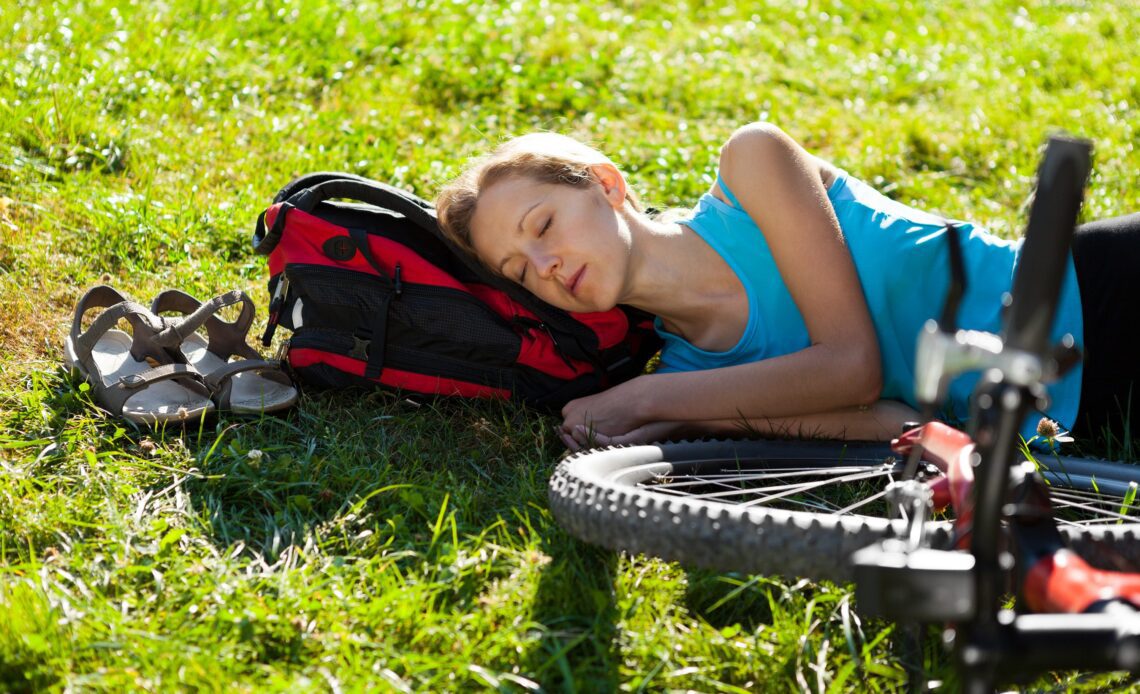If you’re putting in training time, fuelling your body well, and still feel like you are not making improvements, you might just need more (and better) sleep. Neuroscientist and podcast host Dr. Andrew Huberman often emphasizes the importance of sleep and how it carries over to every aspect of life.
“Sleep is the foundation of our mental and physical health and performance in all endeavours,” Huberman explains. “If you’re not sleeping deeply and for long enough for most nights, you are not functioning at your full capacity.”
Here are five of Huberman’s top tips to incorporate more and better sleep into your life and take your cycling performance to the next level.
1. Wake up at the same time each day and sleep when you start feeling sleepy
If you live in North America, you probably read that sentence and scoffed due to our lack of daylight hours during the winter. Huberman suggests that if you wake up when it is still dark out and you need to be awake, turn on artificial lights and then go outside once the sun rises.
A potentially useful circadian-biology based tool:
If you sleep in longer on the weekend & want to make waking early easier on Monday morning:
Stack viewing sunlight, exercise, cold shower & caffeine on Sunday morning, no afternoon nap, dim/turn off all lights by 10pm.
— Andrew D. Huberman, Ph.D. (@hubermanlab) July 24, 2022
2. Wake up at the same time each day and sleep when you start feeling sleepy
Forcing yourself to stay up and going to sleep too late (for you) is one reason people wake in the early hours of the morning.
How does sleep impact stress levels?
Here’s some data on hours of sleep compared to self-reported stress levels in a group of college runners.
Notice a trend? pic.twitter.com/jCURwUUz2Y
— Steve Magness (@stevemagness) April 4, 2022
3. Avoid caffeine within eight to 10 hours of bedtime
We have all heard it before, and many tend to ignore it. I know that I feel like I can fall asleep just fine without keeping track of my caffeine intake, but I’m probably not getting quality rest.
4. Limit daytime naps to less than 90 min, or don’t nap at all
Naps are great until they impact your overall sleep. Keep your naps short (90 minutes max is ideal) if you must have them.
5. Reduce alcohol consumption
For the best night’s sleep and an easier wake-up, you’ll want to limit your alcohol intake. If you are planning to have a few alcoholic beverages, try to alternate with water, and be aware that your…
Click Here to Read the Full Original Article at Canadian Cycling Magazine…

